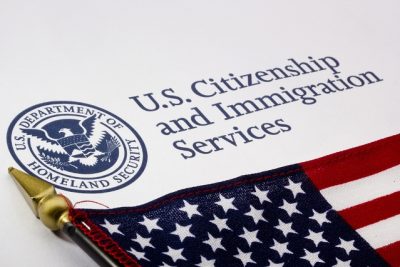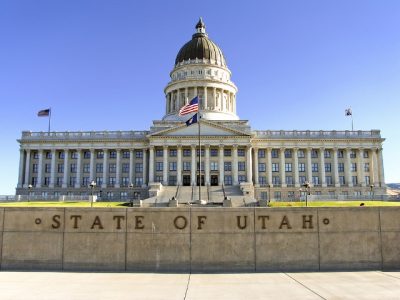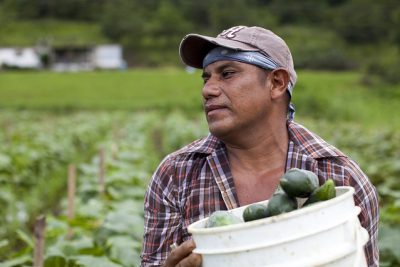Economic Impact
Immigrants are essential to the U.S. economy, filling roles from high-skilled tech sectors to agricultural labor and driving economic growth. They also contribute to the tax base and consumer spending. We champion reform that will maximize this effect and create a more diverse and competitive workforce.

Presidential Debates: Brought to You by an Immigrant
Millions of Americans will tune into tonight’s vice-presidential debate, but few will know the origins of the presidential debate process. While we’ve come to think of these debates as a way to learn more about the candidates vying for our votes, the idea of holding public debates, like so many other great American ideas, can be traced back to an immigrant. While we frequently note that America’s progress over generations has depended on the hard work and ingenuity of past and current generations of immigrants, it’s important to remember that ideas themselves are a benefit sometimes hard to enumerate, but critical to the American experience. Read More

Got Clarity? “Illegal Immigrant” Is More than Just a Term
Over the last few weeks, New York Times Public Editor Margaret Sullivan has been weighing a challenge from fellow journalist and self-described “undocumented immigrant” Jose Antonio Vargas—drop the use of “illegal immigrant” as the Times default description of the 12 million undocumented people in the United States. Sullivan invited and received public comment on the challenge, much of which made subtle and nuanced pleas to use terms that were less insulting and more accurate. This week, calling her decision somewhat anti-climactic, Sullivan recommended that the Times stick with its current style guide because illegal immigrant is a term that is “brief, descriptive, and “gets its job done in two words that are easily understood.” Read More

Naturalized Citizens Have the Power to Swing Elections
There is no doubt that immigrants are a force to be reckoned with in this year’s presidential race. After all, the Obama administration unveiled its Deferred Action for Childhood Arrivals (DACA) program in June, just a couple of months before the official start of the campaign. And Republican presidential nominee Mitt Romney has said that, if elected, he will not deport DACA beneficiaries (although he says he will discontinue the program). In other words, both candidates are going out of their way to woo immigrant voters—that is, naturalized U.S. citizens who are eligible to vote—as well as those second and third generation Americans for whom immigration is still a highly personal issue. This is smart politics. Given that the presidential election could be decided by the most razor-thin of margins, the ballots cast by naturalized citizens could prove decisive, especially in the handful of swing states upon which the election will probably hinge. Read More

Utah Attorney General Pushes Sensible Immigration Policies
Republican Utah Attorney General Mark Shurtleff has become a poignant and effective advocate for smart immigration policies, including the DREAM Act. On Monday, Shurtleff spoke at the Immigration Law and Policy Conference, in Washington D.C., where he concluded that the “biggest casualty in the immigration debate is the truth.” Shurtleff understands prosecutorial discretion, and is firmly behind the Obama Administration’s recent decisions to exercise prosecutorial discretion for immigrant youth (Deferred Action for Childhood Arrivals, DACA) and in cases where the individuals are not enforcement priorities. Shurtleff went on to describe Utah’s recent immigration legislation, which includes an enforcement law, as well as a provision that creates a state guestworker program. He explained that he is still in conversations withthe federal government about how Utah can exercise prosecutorial discretion for unauthorized “guestworkers” and the employers who hire them. Read More

Arizona’s Immigration Policies are an Economic Disaster
Faced with a battered, post-recession economy, lawmakers in Arizona adopted a unique approach to fostering economic recovery; they passed a law that beat down or drove out tens of thousands of the state’s workers, consumers, and taxpayers. The rationale for this counterintuitive action was that the workers, consumers, and taxpayers in question were unauthorized immigrants, and therefore undeserving of support. Some of Arizona’s lawmakers even thought that an exodus of unauthorized immigrants from the state would magically create job openings for unemployed natives. But that’s not how an economy actually works. The unsurprising end result of the attack on unauthorized immigrants has not been recovery, but the shrinking of a state economy that was already contracting. Read More

Agriculture Industry Harmed by Restrictive State Immigration Laws
The American agricultural industry is facing billions of dollars in losses due to labor shortages resulting from recent anti-immigrant laws passed in various states around the country. The American farming industry is heavily dependent on undocumented workers, and according to a recent article in Time Magazine, has had an extremely difficult time replacing those who have fled as a result of laws like Arizona’s SB 1070 or Alabama’s HB 56. Read More

Lifting Up Cities That Are Welcoming Immigrants
When it comes to immigration policymaking at the state and local level, all eyes have been focused for quite some time on train wrecks like Arizona and Alabama. These are places in which policymakers have chosen to deal with unauthorized immigration by embarking on a path of economic self-destruction—blindly lashing out at immigrants and Latinos no matter what the cost in terms of wasted taxpayer money, labor-force contraction, lost economic growth, community upheaval, and violations of fundamental human rights. Read More

No Paid Sick Days for Immigrant Caregivers Risky to Workers, U.S. Economy
By Elisa Batista, Women Immigrants Fellow, New America Media. In 91-year-old Elda Frank’s apartment is a scenario that plays out every moment of every day. An immigrant caregiver with no paid sick days scrambles for backup when she becomes ill on the job. In caregiver Paula Osorio’s case, she called Frank’s son, Bruce, and offered to send her partner, Roberto, in her place. Read More

Citizenship Day 2012: Realizing the Potential of the Immigrant Vote
For many aspiring immigrants, achieving citizenship means full participation in civic life—and that means the right to vote. Every year, thousands of immigrants become naturalized U.S. citizens and exercise their new right. In the 2010 national elections, naturalized citizens comprised 6.4% of all voters. The voter registration rate among immigrants as a whole has risen since 2000. Just as importantly, a growing number of U.S.-born children of immigrants are now coming of age and becoming voters. However, the full potential of the immigrant vote has not been reached. There are more than eight million legal immigrants in the United States who are eligible to naturalize but have not yet done so. The latent electoral power of these voters-in-waiting is enormous. In many parts of the country their votes could potentially swing elections. As described in a series of Immigration Impact blog posts by Rob Paral, there are numerous counties across the country where the number of Legal Permanent Residents (LPRs) who have arrived since 1985 exceeds the margin of victory in the Obama-McCain election. Moreover, the voter rolls of many counties would grow dramatically if LPRs who are eligible to naturalize actually did so and registered to vote. Although this could not happen in time for the 2012 election cycle, it could make a difference in future elections. In many U.S. counties, the number of Legal Permanent Residents (LPRs) who have arrived since 1985 exceeds the Obama-McCain margin of victory. Read More

Immigrant Integration is a Two-Way Street
The process by which immigrants integrate into the economic and social fabric of the United States is very much a two-way street. Naturally, immigrants must harbor the desire to climb the socioeconomic ladder of success. But there must be a ladder for them to climb. If the community within which immigrants live and work makes the collective decision to deprive them of opportunities, then their upward mobility is hindered—to the social and economic detriment of the entire community. Yet, if the community actually welcomes newcomers and helps to facilitate their upward mobility, then the community eventually reaps the rewards of having workers and neighbors who are more highly skilled, more integrated, and more heavily invested in the community itself. Read More
Make a contribution
Make a direct impact on the lives of immigrants.
